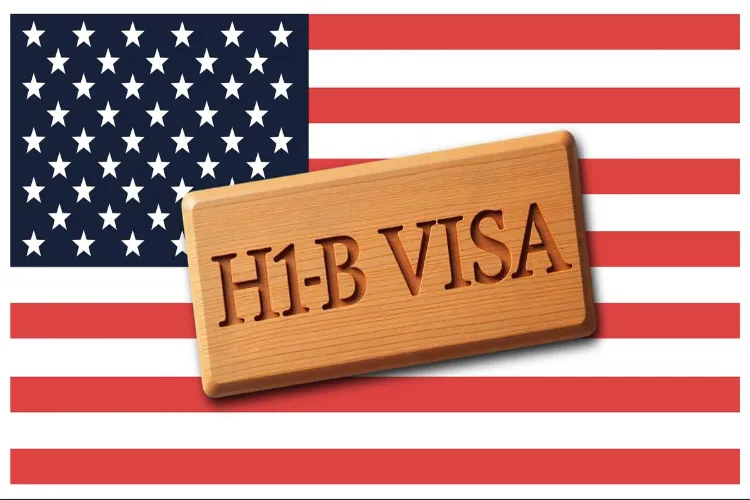
New Delhi
The government said on Saturday that the full implications of the US decision to impose USD 100,000 annual fee on H-1B visa applications is being being studied by all concerned, including by Indian industry, and that the measure is likely to have humanitarian consequences by way of the disruption caused for families.
In a statement regarding restrictions to the US H1B visa programme, Official Spokesperson of Ministry of External Affairs said industry in both India and the US has a stake in innovation and creativity and can be expected to consult on the best path forward.
"The Government has seen reports related to the proposed restrictions on the US H1B visa program. The full implications of the measure are being studied by all concerned, including by Indian industry, which has already put out an initial analysis clarifying some perceptions related to the H1B program," the statement.
"Industry in both India and the US has a stake in innovation and creativity and can be expected to consult on the best path forward," it added.
The statement said that skilled talent mobility has contributed to innovation and wealth creation in the United States and India and policy makers will assess recent steps.
"Skilled talent mobility and exchanges have contributed enormously to technology development, innovation, economic growth, competitiveness and wealth creation in the United States and India. Policy makers will therefore assess recent steps taking into account mutual benefits, which include strong people-to-people ties between the two countries," it said.
"This measure is likely to have humanitarian consequences by way of the disruption caused for families. Government hopes that these disruptions can be addressed suitably by the US authorities," it added.
US President Donald Trump on Friday issued a new presidential proclamation titled "Restriction on Entry of Certain Nonimmigrant Workers" that introduces a major overhaul to the H-1B visa programme, imposing a steep USD 100,000 annual fee on H-1B visa applications, raising fresh questions about whether this is a much-needed correction or a potentially crippling blow to America's tech talent pipeline.
Set to take effect on September 21, the proclamation represents one of the Trump administration's most aggressive efforts yet to overhaul the H-1B visa programme. Framed as a crackdown on "systemic abuse", it places strict financial and compliance burdens on companies seeking to hire skilled foreign workers, especially in the technology and IT sectors.
With 71-72% of H1B visas going to Indians, the $100,000 annual fee imposed by Trump effectively prices out many Indian professionals. This could lead to a significant drop in remittances, which were $125 billion in 2023, affecting families and economies back home.
Indian IT giants like TCS, Infosys, and Wipro rely heavily on H1B visas. The new fee could cost them billions, potentially leading to reduced hiring or shifting jobs back to India.
H1B visas have been a key pathway for upward mobility for many Indian families. This change might close this avenue, impacting social and economic progress.
Indian IT industry body Nasscom has expressed concerns following the US decision of a new USD 100,000 annual fee on H-1B visa applications, calling the move potentially disruptive to global business continuity and the innovation ecosystem in the United States.
In a statement issued on Saturday, Nasscom said that while it is reviewing the finer details of the proclamation, such significant adjustments to the skilled worker visa programme could have far-reaching implications.
"Adjustments of this nature can potentially have ripple effects on America's innovation ecosystem and the wider job economy. It will also impact Indian nationals that are on H-1B visas working for global and Indian companies. India's technology services companies will also be impacted as business continuity will be disrupted for onshore projects which may require adjustments. Companies will work closely with clients to adapt and manage transitions," the industry body said.
Nasscom said the effectiveness of proclamation gives only a one-day window for implementation which is unrealistic and disruptive.
"The timeline for implementation (anyone entering the U.S. after 12:01 a.m., September 21) is also a concern. A one-day deadline creates considerable uncertainty for businesses, professionals, and students across the world. Policy changes of this scale are best introduced with adequate transition periods, allowing organizations and individuals to plan effectively and minimize disruption," Nasscom said.
While acknowledging the shift in global delivery models, Nasscom pointed out that Indian IT companies have been steadily reducing their dependence on the H-1B visa route by increasing local hiring in the US. It also defended the compliance and contribution of Indian firms to the US economy.
"These companies also follow all necessary governance and compliance in the US for H-1B processes, pay the prevailing wages and contribute to the local economy and innovation partnerships with academia and startups. The H-1B workers for these companies by no means are a threat to national security in the US."
The industry body reiterated the critical importance of high-skilled talent in maintaining America's technological leadership at a time when AI and other frontier technologies are reshaping global competitiveness.
"Nasscom has consistently emphasized that high-skill talent is vital to driving innovation, competitiveness, and growth for America's economy. This is especially critical at a time when advances in AI, and other frontier technologies are set to define global competitiveness. High-skill talent will remain central to sustaining America's innovation leadership and long-term economic strength," the statement noted.
READ MORE: Maimuna Nargis infuses life into broken pieces of history
Nasscom said it will continue to monitor developments, engage with industry stakeholders, and seek further clarity on the discretionary waiver process, which is to be granted by the Secretary of the Department of Homeland Security.
